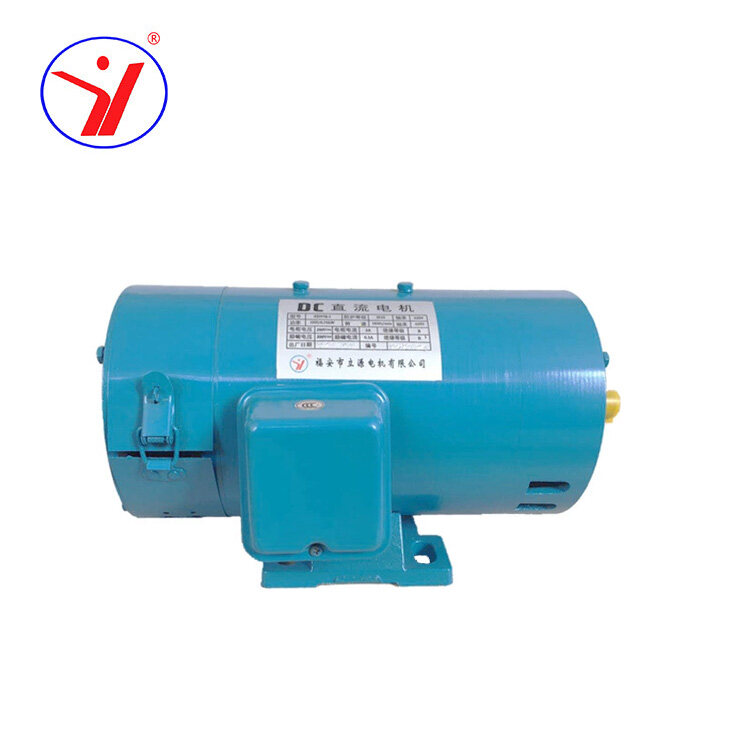Innovations and Trends in High Torque DC Motor Technology
High torque DC motors are essential components in many industrial applications, robotics, and automation systems. These motors are designed to deliver high torque output while maintaining high efficiency and reliability. As technology advances, there have been several innovations and trends in the field of high torque DC motor technology, aimed at improving performance, energy efficiency, and versatility.
Brushless DC Motor Technology
One of the significant innovations in high torque DC motor technology is the development of brushless DC (BLDC) motors. Unlike traditional brushed DC motors, BLDC motors eliminate the need for brushes and commutators, resulting in higher efficiency, longer lifespan, and reduced maintenance requirements. These motors use electronic commutation, which is controlled by a motor controller that switches the motor windings on and off in a specific sequence based on the rotor position.
BLDC motors offer several advantages over brushed DC motors, including:
- Higher Efficiency: The absence of brushes eliminates friction losses, resulting in higher energy efficiency and lower power consumption.
- Longer Lifespan: Without brushes, BLDC motors are not subject to wear and tear caused by brush-commutator friction, leading to a longer operational life.
- Low Electromagnetic Interference (EMI): The electronic commutation in BLDC motors generates less electrical noise, making them more suitable for applications where EMI is a concern.
- Higher Torque-to-Weight Ratio: BLDC motors can deliver higher torque outputs while maintaining a compact size and lightweight design.
Advanced Motor Control Techniques
To maximize the performance and efficiency of high torque DC motors, advanced motor control techniques have been developed. These techniques involve the use of sophisticated motor controllers and algorithms to optimize various aspects of motor operation, such as:
-
Field-Oriented Control (FOC): FOC is a popular control technique that decouples the motor's torque and flux components, allowing for precise and independent control of each component. This results in improved dynamic response, higher torque output, and better energy efficiency.
-
Sensorless Control: Sensorless control algorithms eliminate the need for physical sensors to determine the rotor position, reducing the cost and complexity of the system. These algorithms rely on advanced signal processing techniques to estimate the rotor position based on the motor's electrical characteristics.
-
Adaptive Control: Adaptive control algorithms continuously monitor and adapt to changes in the motor's operating conditions, such as load variations or temperature fluctuations. This ensures optimal performance and efficiency under varying conditions.
Energy-Efficient Motor Design
With increasing emphasis on energy conservation and sustainability, high torque DC motor manufacturers have focused on developing energy-efficient motor designs. These designs incorporate various strategies to reduce energy consumption and improve overall system efficiency, such as:
-
Optimized Winding Configurations: By optimizing the winding configurations and using advanced materials, motor manufacturers can minimize resistive losses and improve heat dissipation, leading to higher energy efficiency.
-
Improved Magnetic Circuit Design: Advancements in magnetic circuit design, including the use of high-energy permanent magnets and optimized stator and rotor geometries, can enhance the motor's torque output while reducing energy consumption.
-
Integrated Motor-Drive Systems: The integration of high torque DC motors with advanced motor drives and control systems can further improve energy efficiency by optimizing the overall system performance and minimizing energy losses.
Conclusion
The field of high torque DC motor technology continues to evolve, driven by the demand for improved performance, energy efficiency, and versatility in various applications. Innovations such as brushless DC motor technology, advanced motor control techniques, and energy-efficient motor designs are shaping the future of this technology. As these trends continue to progress, we can expect to see even more efficient, reliable, and high-performance high torque DC motors in the years to come.



